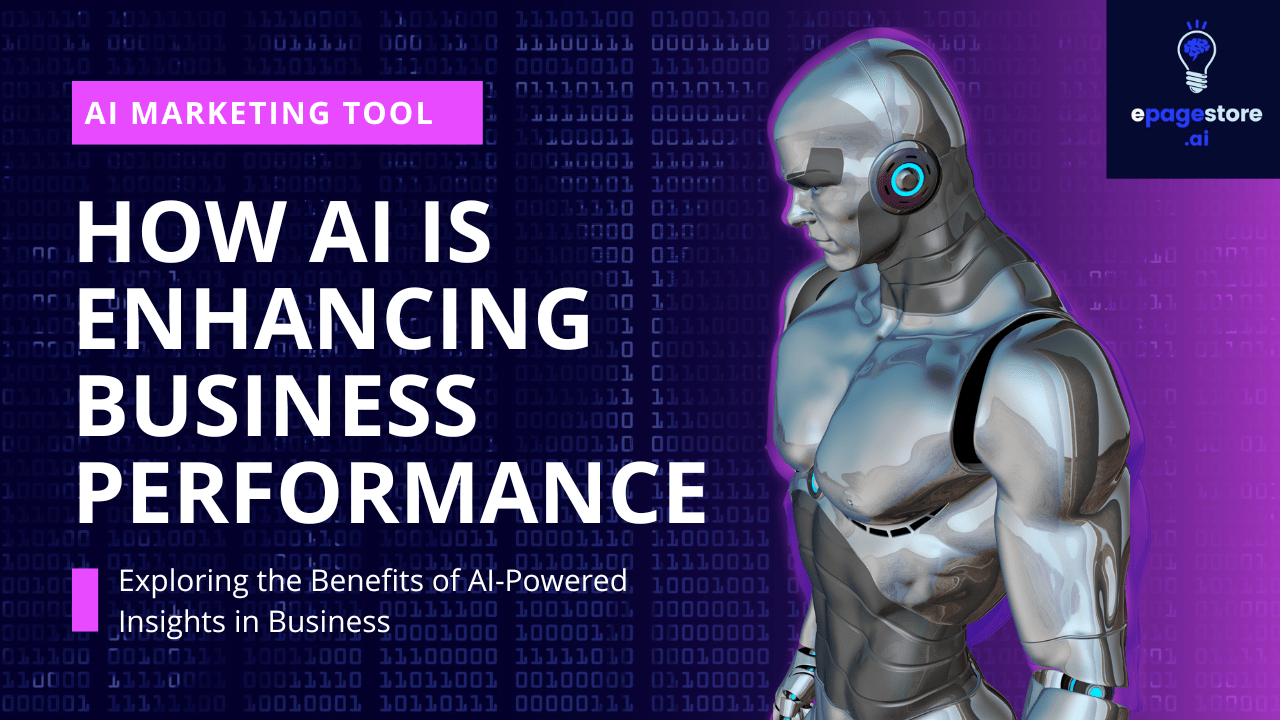AI in Business: How AI is changing the way businesses operate, including customer service, marketing, and supply chain management.
epagestore / April 14, 2023

Artificial intelligence (AI) is transforming the way businesses operate across industries, from customer service to marketing and supply chain management. With advances in machine learning, natural language processing, and robotics, AI is revolutionizing the way companies manage their operations, analyze data, and interact with customers. In this blog, we will explore how AI is changing the way businesses operate and its impact on various business functions.
Customer Service
AI is transforming customer service by enabling companies to provide personalized experiences to their customers. With AI-powered chatbots and virtual assistants, businesses can automate customer service interactions, reducing wait times and improving response rates. Chatbots use natural language processing (NLP) to understand and respond to customer inquiries, allowing businesses to provide 24/7 customer support without the need for human intervention.
AI-powered chatbots are also improving customer engagement by providing personalized recommendations based on customer preferences and purchase history. Chatbots can analyze customer data to offer personalized product recommendations, making the shopping experience more convenient and efficient.
Moreover, AI-powered sentiment analysis allows businesses to monitor social media and other channels to identify customer feedback and sentiment. This helps businesses to address customer concerns and improve their overall experience.
Marketing
AI is revolutionizing marketing by enabling businesses to analyze vast amounts of data and identify patterns and insights that were previously difficult to identify. Machine learning algorithms can analyze customer behavior, preferences, and purchase history to provide insights into customer segments and preferences.
This data can be used to personalize marketing campaigns, tailoring messaging and offers to individual customers, and improving conversion rates. AI-powered marketing automation tools can also automate repetitive tasks, such as email marketing and social media posting, freeing up time for marketers to focus on more strategic tasks.
Supply Chain Management
AI is transforming supply chain management by providing real-time visibility into operations and enabling companies to optimize their supply chains. AI-powered logistics platforms can analyze historical data to identify patterns and predict demand, allowing businesses to optimize their inventory and reduce costs.
Moreover, AI-powered predictive maintenance can identify potential equipment failures before they occur, reducing downtime and improving productivity. This helps businesses to improve their operations and reduce costs, improving their bottom line.
Challenges and Considerations
While AI is transforming the way businesses operate, there are also challenges and considerations that companies must address. One of the primary concerns with AI is the potential for bias in decision-making. Machine learning algorithms are only as good as the data they are trained on, and if the data is biased, the algorithms can also be biased.
This can have serious consequences in areas such as hiring and lending, where bias can lead to discrimination. Companies must be vigilant in ensuring that their AI systems are unbiased and transparent.
Another challenge is the potential for job displacement as AI automates repetitive tasks. While AI can free up time for employees to focus on more strategic tasks, it can also lead to job losses in some areas. Companies must be mindful of the impact of AI on their workforce and take steps to reskill and retrain employees for new roles.
Conclusion
AI is transforming the way businesses operate across industries, from customer service to marketing and supply chain management. By providing real-time insights, automating repetitive tasks, and enabling personalized experiences, AI is helping businesses to improve their operations and reduce costs. However, companies must also be mindful of the challenges and considerations associated with AI, including bias in decision-making and potential job displacement. By addressing these challenges and leveraging the power of AI, businesses can improve their bottom line and provide better experiences for their customers.